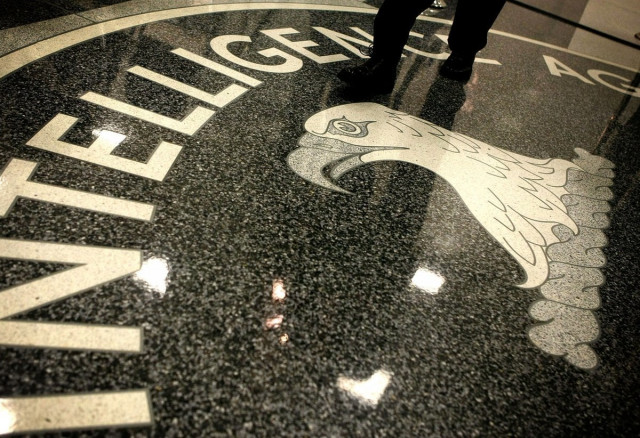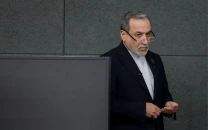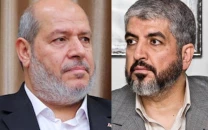As US debates over Islam, CIA's Muslim officers fight terrorism
Muslim officers acknowledged that the CIA is viewed with suspicion in their communities

The seal of the Central Intelligence Agency in the lobby at CIA headquarters. PHOTO: TWITTER/CIA
The December 2 shootings had ignited a heated debate over the role of Muslims in the United States.
Presidential contender Donald Trump’s subsequent call to ban Muslims from entering the country had offended many Americans but resonated with others.
At the CIA’s Virginia headquarters, the agency’s No. 2 official, David S. Cohen, wanted to push back against anti-Muslim discourse.
While speaking to several dozen employees, he had a simple message, about attempts to marginalise Muslim employees: “zero tolerance”.
For agency leaders, telegraphing their support for the CIA’s small cadre of Muslim employees was crucial because they see their presence as “mission critical”.
American Muslims see Trump rhetoric fueling prejudice, hate incidents
CIA's workforce is linked to many parts of the world and this enables the agency to understand the thinking of foreign adversaries.
In an effort to increase awareness about Muslims who take part in sensitive national security work, the agency permitted nearly a dozen of employees to speak with a Washington Post reporter on the condition that they be identified in accordance with agency restrictions.
As the nation debates the place of Islam, the CIA’s Muslim officers fight terrorism https://t.co/zcHBCCSY3b pic.twitter.com/DPwnxpg5ZP
— CIA (@CIA) June 22, 2016
The uncommon decision to introduce current employees, including multiple undercover officers, to the media reflects the pressure the agency faces to show that it is becoming more diverse.
The CIA says it does not keep statistics on religion and officials acknowledge that Muslims represent a tiny percentage of the workforce.
Director John Brennan said he has taken steps to hold senior personnel accountable for making the CIA more heterogeneous. “I can think of no better department that can make a better business case for diversity and inclusion than the CIA.”
The employees themselves described their fellow Muslims in terms of a “handful” of individuals.
While the former head of the CIA counterterrorism centre was a convert to Islam, another former officer, Yaya Fanusie, said he knew at most eight other Muslims at agency headquarters when he worked there from 2005 to 2012.
Many of the agency’s Muslims are naturalised Americans, who said they are proud that the US government has trusted them with its most closely guarded secrets, even though some had barely obtained US citizenship before entering the CIA.
One Muslim officer, who was born in South Asia, came to the United States for graduate school and joined the agency shortly afterward.
The officer was hired as an analyst, she later became an operations officer and now holds a senior position in the CIA Counterterrorism Center, leading a unit that tracks a Middle Eastern militant group.
Since the September 11, 2001, attacks on America, she has been at the centre of US counterterrorism efforts. After 9/11, she authored the first critical intelligence report for policymakers on Pakistan.
Abbotabad attack: CIA ‘live-tweets’ OBL raid
In her work as a case officer overseas, said the woman, who is undercover, her roots and religion helped her connect with potential assets.
But Muslims at this clannish organisation also described being caught between two worlds: the agency they serve and the communities from which they come.
Muslim officers acknowledged that the CIA is viewed with suspicion in their communities. Many would like to push back but usually don’t, for fear of revealing themselves as agency employees.
Brennan, speaking prior to the Orlando attack, addressed Trump’s message directly. “It’s a very simplistic and very misleading and very corrosive attitude that harms our engagement . . . in the Muslim world, but also I think harms the unity and the integration that we have been so proud of here,” he said.
The article originally appeared on The Washington Post



















COMMENTS
Comments are moderated and generally will be posted if they are on-topic and not abusive.
For more information, please see our Comments FAQ